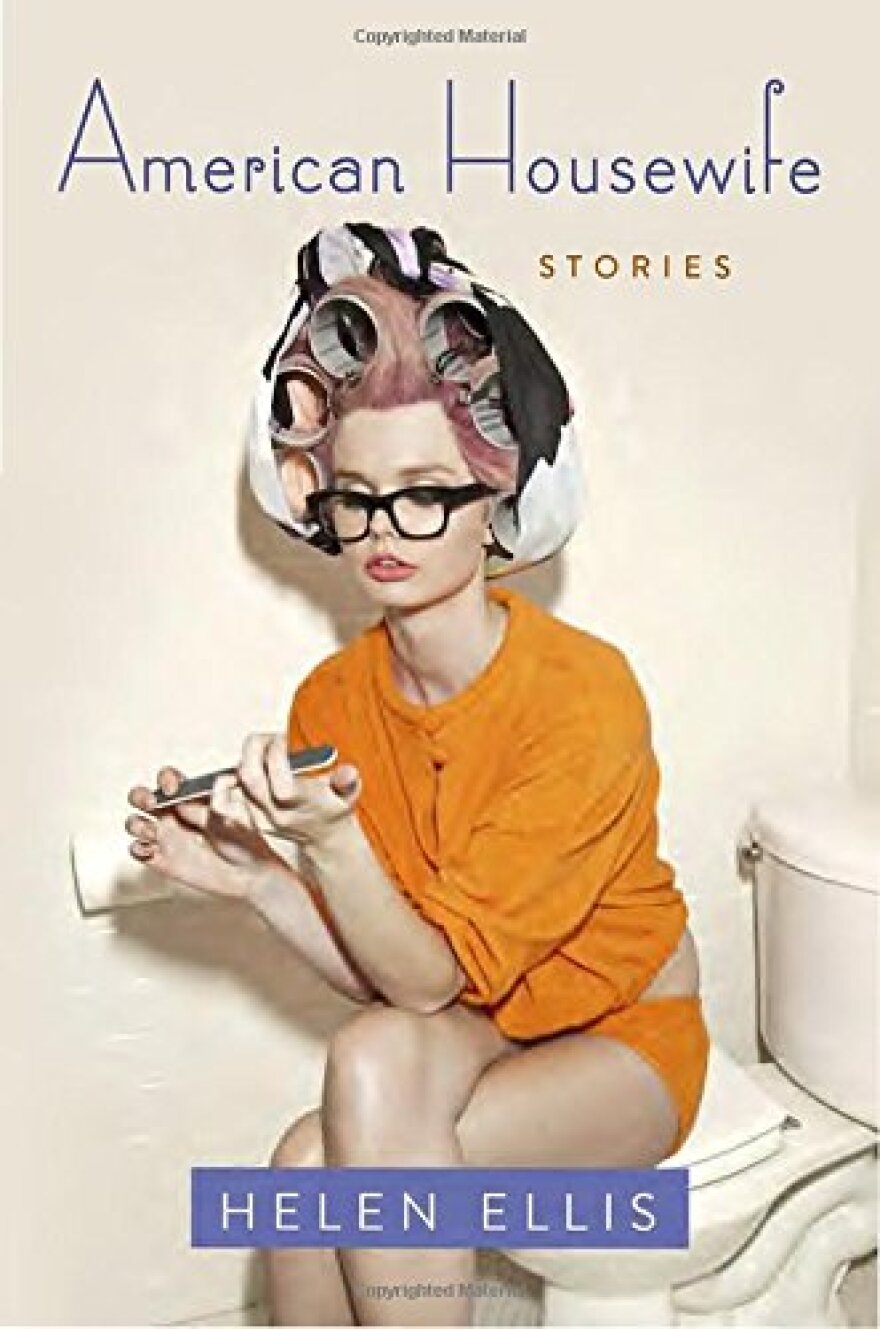“American Housewife: Stories”
Author: Helen Ellis
Publisher: Doubleday
Pages: 185
Price: $24.00 (Hardcover)
Tuscaloosa native Helen Ellis had a great success with her comical debut novel “Eating the Cheshire Cat,” set on the University of Alabama campus—partly in a sorority house—with its explosive climax on the football field during a half-time show.
Fifteen years later Ellis, now a New Yorker, has reappeared with the clever, sometimes hysterical story collection, “American Housewife,” which generated the much-coveted buzz in New York, including profiles in “The New York Times,” “Washington Post” and “Vogue” and pushed “American Housewife” immediately to the “Times” best-seller list.
What happened in between is explained, sort of, in the semi-autobiographical story “How to Be a Patron of the Arts.” The speaker, a published novelist, completes three more novels and all are rejected. In “real life” Ellis wrote novels about a Civil War-era prostitute, witches in the 1950’s, and a poker-playing serial killer. (She is a professional poker player who competes successfully in tournaments, including the annual World Series of Poker in Las Vegas.) Ellis’ heroine stops writing and enjoys daily life in her Upper East Side apartment, cleaning, reading and encouraging promising new painters. Ellis did all this of course, along with playing poker professionally, but then took up tweeting. The tweets became hugely popular, turned into short stories published in literary magazines and are now collected in the volume “American Housewife.”
The other 11 stories, not autobiographical, are highly imagined riffs on contemporary life and culture: very funny and sometimes naughty.
“The Wainscoting War” is a story delivered by email—the twenty-first century form of the epistolary novel with the elapsed time between letters at nearly zero. Two privileged women get increasingly cranky over redecorating their shared apartment house foyer. The escalation is scary, the violent ending a wonderful surprise.
It may not be possible to mock reality TV, since there is in fact a show about competitive bidding on the contents of abandoned storage units, but “Dumpster Diving with the Stars” features a famous scientologist/actor who wishes to appear more masculine; Mitzy, former mistress of Hugh Heffner; chef Mario Batali; John Lithgow; and a writer. (Reality TV rarely features writers.) In the show, they bid competitively on junk and antiques and come to like each other, which drives the director mad.
Two stories are almost inadvertently linked. In “Pageant Protection,” a woman rescues 6- to 10-year-old girls from domineering mothers who had forced them to be beauty queens. She brings the girls to NYC to begin new lives with nice, affluent, childless people. The girls will go to private school, learn French and never dress up as princesses.
In a story set in a Manhattan book club, a young woman is wooed into the club in hopes she will be willing to serve as a womb-surrogate for the 40-something professionals who have postponed pregnancy too long and tested nature’s patience.
Almost all these stories are set in New York, but “The Fitter,” less humorous abut really touching, is set in a small Georgia town and features a man with a gift. “Like some men are born with an ear for music or a brain for math” he knows exactly which bra a woman needs and that “a good bra is fine, but a great bra is life changing. It gives you the confidence of a homecoming queen. It’s a tiara for your ta-tas. ” Women make pilgrimages to be fitted and many make moves on the lingerie genius, to no avail. He is the faithfullest of husbands.
The reader is also reminded of Ellis’ Southern roots in the story “Southern Lady Code,” which is really a mini bidialectal dictionary. Like the American Indian code-talkers in the Pacific in WWII, Southern ladies can speak to one another without fear that anyone outside the tribe will understand them.
All new Yankees know this is true.
In a series of entries, Ellis reveals:
“‘Is this too dressy?’ is Southern Lady code for: I look fabulous and it would be in your best interest to tell me so.”
“‘What do you think about her?’ is code for I don’t like her.”
“‘She’s a character’ means drunk.”
“‘She has a good time’ means slut.”
“‘Hmmm’ is Southern lady code for: I don’t agree with you but I am polite enough not to rub your nose in your ignorance.”
As must be obvious, the stories range over a wide number of subjects.
Ellis has created a modern ghost story in “Dead Doormen,” and a spoof—at least so far—of the publishing industry.
We are all now sensitive to product placement. In movies and on TV, nobody just eats, drinks or drives generically. Brand names are placed obviously, if not overtly mentioned. What if a novel were actually commissioned that way: subject matter chosen, story line controlled, then the product promoted and distributed by a corporation? Ellis’ story “My Novel is Brought to You by the Good People at Tampax” begins: “It’s the story of three generations of women and spans three decades. That’s a lot of menstruation.”
This review was originally broadcast on Alabama Public Radio. Don Noble is host of the Alabama Public Television literary interview show “Bookmark” and the editor of “A State of Laughter: Comic Fiction from Alabama.”


